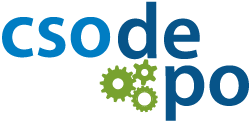Launch of the evaluation survey on capacities of civil society organisations in Armenia
26 November 2015, Yerevan – The European Union funded project “STRONG Civil Society Organisations for Stronger Armenia” invites all interested civil society organisations (CSOs) to take part in the project survey aimed at evaluating the capacities of CSOs in Armenia.
The survey is part of an extensive CSOs capacity needs and gaps assessment conducted within the framework of the project. The results compiled through the survey will provide an understanding of CSOs needs and gaps and will be further used to inform and design all subsequent activities of the project.
The project “STRONG Civil Society Organisations for Stronger Armenia” is aimed at increasing the capacities of CSOs in Armenia as independent development actors to make them more competent, more responsive to citizens’ needs, and proactively supporting the country’s development through practical, project-based approaches.
The project is focused on three specific objectives:
increasing internal capacities of CSOs,
increasing external capacities of CSOs,
increasing capacities of CSOs in applying for and implementing EU projects.
We strongly recommend that all interested organisations participate in the survey to secure possible future engagement in the above mentioned capacity building activities, including the possibility to take part in a grants competition. For further details please contact us at [email protected] by 4 December 2015.
Further information:
STRONG Civil Society Organisations for Stronger Armenia project
E-mail: [email protected]
This project is implemented by the consortium of Podlaska Regional Development Foundation (Poland) and DAS.am Consulting and Support NGO (Armenia).
Address: AUA Business Centre, 9 Alek Manukyan Street, Room 312, 0070 Yerevan, Armenia
E-mail: [email protected]
This project is funded
by the European Union
Delegation of the European Union in the Republic of Armenia
Tel: +374 (10) 54 64 94
Fax: +374 (10) 54 64 95
E-mail: [email protected]
The European Commission is the EU’s executive body.
“The European Union is made up of 28 Member States who have decided to gradually link together their know-how, resources and destinies. Together, during a period of enlargement of 50 years, they have built a zone of stability, democracy and sustainable development whilst maintaining cultural diversity, tolerance and individual freedoms. The European Union is committed to sharing its achievements and its values with countries and peoples beyond its borders”.
